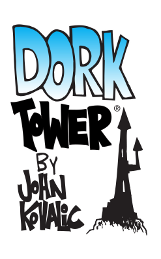Episode 48: Except for All the Cannibalism
July 19th, 2013 | Robin
 Events in Egypt have us taking shelter in the Gaming Hut to suggest approaches to uprisings and revolutions in roleplaying narrative.
Events in Egypt have us taking shelter in the Gaming Hut to suggest approaches to uprisings and revolutions in roleplaying narrative.
Then Robin beckons you to the Cinema Hut for a quick intro to Chinese film, as seen through three rarities recently screened at the TIFF Lightbox: the suppressed censorship satire Unfinished Comedy, showbiz melodrama on the cusp of the Cultural Revolution Two Stage Sisters and the proto-heroic bloodshed of The Story of a Discharged Prisoner.
Game design bubbles creative and economic get the Ask Ken and Robin treatment, thanks to a query from Ironicus.
Then the Consulting Occultist completes his obligations as a guide to the Nazi occult with a look at the scholarship-distorting, expedition launching academic department of the SS, the Ahnenerbe.
Podcast: Play in new window | Download















Hey guys awesome podcast. A technical quibble, the files for episodes 29 and 30 appear to be out of order, I can’t access them. Ken informed me that tech guy is on vacation, so here’s a note for when he’s back from well earned rest.
Now that I’ve caught up on what you have talked about, a couple show topic suggestions.
Ken mentioned PCs setting up “the long con” – can you do a segment about con artists and their shenanigans, and how to handle it in gaming?
I’d also love to hear the consulting occultist’s take on Robert Anton Wilson.
We are hunting down the missing files and hoping they are not lost to the ages.
I have episode 29 if you need it.
The AWOL files have been found cavorting on the beach with raccoons and supermodels. We are now arranging transport for them back to their duly assigned positions.
Did the files board the correct vessel?
Thanks for the reminder. I’ll go poke them with the poking stick.
They should be restored now.
Alas, I find that I still cannot access them. If the files are present then maybe the links are wrong.
Working now, thank you!
Re counterrevolutionary good guys, I’d think the first stop on the list would be Poul Anderson’s Dominic Flandry, whose stories are full of well-intentioned rebels who have to be stopped for the greater good. (Whether they’re catspaws for the enemy Merseians or, like the attempted revolt of a popular general, simply the opening wedge for general chaos.) To an extent, Anderson’s Time Patrolman Manse Everard is filling the same role, putting down even the most promising historical changes in favor of an established timeline that happens to be the devil we know.
While it’s been a while since I read him, Jerry Pournelle seems like another good bet, particularly the Falkenberg series. Lois McMaster Bujold’s Aral Vorkosigan offhandedly puts down democratic rebels while primarily dealing with an Imperial pretender, and his son Miles has no patience with the idea of self-determination for Barrayar’s Komarran satrapy.
It’s true that no matter how asymmetric the sides may be in the hero’s favor overall, to gain our sympathy those resources have to be mostly unavailable or in doubt during the story itself. In our cultural tradition, the hero practically has to be the underdog, no matter how contrived the method.
Now that I’ve caught up on listening to all your previous episodes, would you guys mind going to a daily schedule? Thanks.
Supplementing Michael S. Schiffer Re: counterrevolutionary good guys.
The Dark Knight Rises. Save the world by breaking the cops out of prison.
The Warriors. The revolution turns on its own.
Zhang Yimou’s Hero: a rebel assassin decides that he must let the emperor live to conquer, for the rebels’ own good.
The Dark Knight Returns (comic book and DVD cartoon): Batman returns to stop the Mutant rebellion seeking to overthrow the government of Gotham City. He co-opts many of its members into a conservative vigilante force that seeks to uphold and reform the corrupt regime.
It’s only in the beginning, but in Gladiator we learn what a great guy Maximus is when he crushes a German alliance seeking to liberate their people from the Roman Empire. Similar situation in HBO’s Rome when Caesar crushes first a Gallic and then an Egyptian rebellion.
Mississippi Burning: ruthless Northern agents crush Southern rebels seeking to protect their way of life from a powerful central government and outside agitators. That way of life including the public murder of a racial underclass and local police assistance in assassinating civil rights volunteers.
Patriot Games (movie): retired CIA agent Jack Ryan foils a Provisional IRA assassination attempt against a British official, killing one terrorist along the way. The rest of the movie is the ongoing feud between the dead terrorist’s older brother and Ryan, who has the full might of the US and UK governments behind him.
Reaching back a bit further, The Green Berets with John Wayne. South Vietnamese forces and their American allies take down corrupt communist rebels.
Having just read past the Otto Rahn Section in “The Nazi Occult”, I would say that the likelihood that the Ark of the Covenant was captured by the Americans is equivalent to surviving an atomic blast in a refrigerator.
Next thing you’ll be telling us is that there are magnetic, telepathic, alien crystal skulls secreted in some sort of clandestine storage facility in Area 51.
I was thinking about other rebellions against Western style democracies such as the Basque, Corsican and Welsh separatists, US survivalists (and that local disturbance in the South), the Aum Shinrikyo in Japan or the rather more complicated Taiping Rebellion.
If you squint, both superheroes and James Bond are fighting rebels — the rebels just wear capes or Nehru jackets and leverage their support by means of superweapons. Although it’s interesting to see how in recent decades both comic-book supervillains and Bond villains have taken on more and more aspects of being “the Man” (typically by means of the inevitable Evil Corporation as a front for their supervillainy).
A question for Ken: can you do something about any Italian analogues of the Ahnenerbe? Did Mussolini have an occult study group?
Oh, absolutely: superheroes are by convention entirely reactive and committed to preserving the status quo. Yhe only people making near-term efforts to effect change are villains, and whether they’re well-intentioned people who’ve Gone Too Far or outright monsters, they have to be stopped.
For a hero to get tired of putting out individual fires and want to use their powers to make a real difference to reduce crime, poverty, endemic corruption, etc. is almost invariably an early-warning sign that they’re going bad in some way. The stories that highlight real-world systemic problems tend to be grim reaffirmations of the heroes’ limits, rather than fantasies of solving them with superpowers.
(Stories from the early Golden Age can be interesting, since that convention hadn’t quite set in. But they also didn’t sweat continuity much, so Superman, say, scaring all the corrupt politicians in Metropolis straight and clearing its slums, or stopping regional wars by punching everyone in charge, didn’t affect anything going forward.)
A seminial counter-revolutionary hero is the Scarlet Pimpernel, who rescues nobles from the Terror during the French Revolution. That character is arguably a main inspiration for figures like Zorro and Batman.
And speaking of Batman, I would echo Gene Ha’s noting of The Dark Knight Rises. That film is, at its core, deeply conservative and profoundly anti-revolutionary, with its portrayal of Occupy figures as mindlessly raiding the wealthy and conducting Terror-like show trials. Yes, they are perhaps duped by Bane, but overall the message seems clearly that the 1% need to be protected from the rabble, and that wealthy playboy Bruce Wayne’s alter-ego is precisely the one to do so. Batman is much more a Pimpernel-like character in this film in terms of his concerns and focus than in the earlier Nolan films, where the common folk seem to actually be on his radar.
It’s certainly counterrevolutionary, but I’m not sure it’s really about protecting the wealthy so much as protecting everyone from false revolutionary promises. The common people are the ones Bane makes hostages, deprives of police protection, subjects to his political/social experiment, and whom Batman nearly sacrifices himself to save.
For Ask Ken and Robin:
Given unlimted time/resources, what game system/supplement/etc would you like to go back and rewrite given what you’ve learned about game design since you originally wrote it (if any)?
A Trail/GUMSHOE question for Robin or Ken or anyone else out there, please:
How should one handle grappling in GUMSHOE?
I see, for example, that the Dark Young of Shub-Niggurath can grab and hold an opponent, and do “automatic blood drain [damage] each round thereafter.” What can the victim roll to attempt to break the hold, and what does the Dark Young roll, if anything, to maintain the hold?
I can’t find this sort of thing addressed in the Tests & Contests rules.
I looked at the Contest mechanics, in which each party on their turn rolls against a fixed target number, e.g. 4, and the first party to fail a roll looses the contest. But a grapple like the one described is not the same sort of contest as a chase: a chase continues for as long as both parties succeed at their rolls; whereas a grapple continues for as long as the grappler keeps succeeding and the victim keeps failing (to break free). Using the Contest rules as written, and setting a nominal target number like 4, grapples would most often be broken on the victim’s next turn.
One could set asymmetrical target numbers; e.g., the Dark Young rolls against 4, the human victim rolls against a number in the range of 6-8, to reflect the Dark Young’s superior grappling facility, it having masses of ropy tentacles. If so, then how should one choose the target numbers? Hit thresholds don’t make sense (the Dark Young’s is only 3). I think it should be based on Athletics or Scuffling ability. Perhaps something like:
Target Number = 3 + (opponent’s Scuffling rating / K ), rounded down.
A Dark One’s Scuffling rating is 26. If K=6, then the human victim is rolling against a target number of (3+26/6=) 7 to break free, which seems about right — difficult but not impossible.
That’s the best that I can come up with. Any thoughts? I’ll be GMing our first GUMSHOE game (and our first Cthulhu game) next week – looking forward to it!
Thanks,
-John
Just set target number for the human opponent higher, at 6-8 depending on desired level of bad-assedness, without trying to derive it from another stat.
Ok thanks!
I tried to word my question with a bit of doom and gloom to inspire a more optimistic reaction, and it worked! A lot of people are predicting some factors leading to this golden age, Kickstarter in particular, are bound to collapse but I agree that the hobby is on the right track and excited to see what’s next.
I do have a followup question though, and I suppose it’s more suited to Ken. What are some regional conventions you’d reccomend for a Chicago resident without a car? Also I’m the guy that chatted with Ken for a bit at C2E2 after the state of roleplaying panel about 13th Age and actual play podcasts.
The interesting thing about China-only insertions such as in Iron Man 3, and the “Shanghai is great” stuff in Looper, is its intended audience.
Numerous commentators have questioned the wisdom of this sort of obvious pandering, since Chinese cinema audiences react almost 100% negatively.
The trick, of course, is that the target audience for these slightly naff insertions is not the cinema audience but the apparatchik audience at SAARFT, who control the annual quota of foreign film imports.
And those guys have no taste. Cf. Unfinished Comedy.
Too many As – I mean “SARFT”.
Doing the research for this week’s bibliography taught me one thing. I suck at figuring out Chinese names from hearing them spoken. One of which I never succeeded at finding out any films they directed.
Bibliography
TV Shows:
Kung Fu
Green Hornet
Community
Movies:
A Better Tomorrow by John Woo
Center Stage or Actress by Stanley Kwan (feat. Maggie Cheung)
Chimes of Midnight by Orson Wells
Hero by Zhang Yimou
House of Flying Daggers by Zhang Yimou
Iron Man 3 by Shane Black
The Killer by John Woo
Le Samourai by Jean-Pierre Melville
The Story of a Discharged Prisoner by Patrick Lung Kong
The Trial by Orson Wells
Two Stage Sisters by Xie Jin
Unfinished Comedy by Lu Ban
Wong Fei-Hung: The Whip That Smacks the Candle by Wu Pang
Yi Yi by Edward Yang
Don’t feel too bad, the Chinese pronunciation was highly variable.
(Not knocking K&R; it’s not easy, especially with people using different romanisations for different names.)